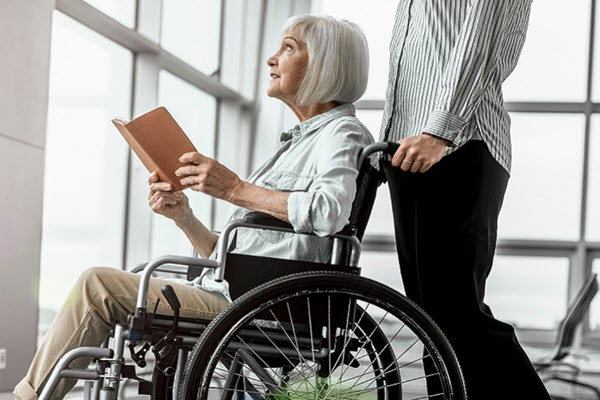Assisted Air Travel Can Improve With Better Collaboration
- Written by News Desk
 The Rt. Hon. the Lord Blunkett and Roberto Castiglioni MBE have written this joint open letter focused on how to improve assisted air travel.
The Rt. Hon. the Lord Blunkett and Roberto Castiglioni MBE have written this joint open letter focused on how to improve assisted air travel.
In recent weeks, there has been a surge in public discussion about the existing shortcomings in assisted air travel. Understandably, accidents can cause a range of powerful emotions to run high and are likely to provoke an immediate response. However, it is important to take a more balanced and proactive approach when tackling these issues in order to ensure that meaningful progress is made.
The continued demonization of the U.K. Civil Aviation Authority in regard to assisted air travel, is not only disproportionate but also counterproductive towards the collaborative efforts between all stakeholders that are necessary to ensure safe and successful air travel. Assisted air travel is, and always will be, a process which relies upon the interrelated cooperation of all participants in order to provide safe and secure air transportation for all.
Despite having limited enforcement powers that were inadequate and not always dissuasive, the U.K. CAA has worked diligently over the last few years to create ground-breaking accessibility guidance for the aviation industry. This demonstrates their commitment to improving accessibility in the sector and making sure that all members of society can travel with ease and safety. Underscoring the immense value of such guidance, much of it was incorporated into Document 30 of the European Civil Aviation Conference. This document serves as an important benchmark for all international aviation standards and regulations.
Granting the Civil Aviation Authority (CAA) the authority to issue fines is often seen as an unfortunate but necessary step by airports and airlines. However, with the right proactive approach, the aviation sector can look beyond traditional CAA-issued fines and instead focus on taking preventative measures to ensure compliance and avoid such penalties altogether. This would be a more desirable outcome for all involved parties and could help improve overall industry standards in the long run.
By focusing on proactive measures such as comprehensive employee training, establishing, and implementing robust policies and procedures, and investing in modern technologies, the aviation sector can significantly reduce their chances of being fined by the Civil Aviation Authority. With these proactive measures in place, airports and airlines can ensure that their operations are compliant with all applicable regulations and standards, and ultimately make air travel more inclusive.
While granting the Aviation Watchdog with new and additional powers is an essential part of the solution, providing tailored guidance and support from the U.K. CAA to operators is also crucial in achieving long-term, far-reaching results that will benefit everyone in the industry. The guidance being provided by the U.K. CAA has been designed to help operators make informed decisions that can positively shape not only their own operations but also those of other aviation stakeholders in the U.K.
and support from the U.K. CAA to operators is also crucial in achieving long-term, far-reaching results that will benefit everyone in the industry. The guidance being provided by the U.K. CAA has been designed to help operators make informed decisions that can positively shape not only their own operations but also those of other aviation stakeholders in the U.K.
Even more fundamentally critical than granting the CAA new enforcement powers is one of the very real and tangible opportunities presented by BREXIT for the United Kingdom to create comprehensive, new legislation that bridges the gaps between the U.S. and EU regulatory framework. This modernized legislation would ensure that everyone is treated fairly and with respect.
Here, and in Europe, the onus is on the airport; in the US it is on the airline. Ensuring that all those who have a part to play, collaborate, and where necessary, can be held responsible, is fundamental. From support provided, through the airport, by Service Providers employed by the airport (not the airline), through to ground handling of important and sensitive equipment.
A comprehensive new framework that not only ensures the rights and equitable treatment of disabled passengers but goes beyond that to provide a level of service excellence in the aviation sector will be crucial. This is especially important during a time when men and women with defined disabilities, visible or otherwise, may feel disenfranchised because of a lack of accountability, and certainly undervalued. The new framework would provide tangible steps for increasing the accessibility of services and ensuring disability rights are respected.
The U.K. has the capability and experience to construct revolutionary, globally respected legislation with every party involved in the aviation industry. This process would ensure that all voices are heard and taken into consideration when creating the new law that will shape the industry into a better future for everyone.










